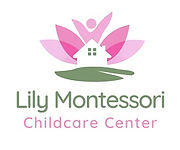Montessori vs. Traditional Preschool, Which is Better and Why?
- Lily Montessori
- Nov 15, 2023
- 2 min read
Updated: Jul 9, 2024

As a Montessori teacher with years of experience under my belt, I've often encountered questions about how Montessori preschools differ from traditional ones. Choosing the right preschool is a crucial decision, and I'm here to share some insights that might help you navigate this choice. Let's break down Montessori vs. Traditional Preschool
A Personalized Learning Journey
In a Montessori classroom, each child's learning journey is highly individualized. We observe each child and tailor activities to suit their unique developmental stage and interests. Traditional preschools, while nurturing, often follow a more standardized curriculum aimed at the group rather than the individual.
The Classroom Environment: A World of Difference
Walking into a Montessori classroom, you'll notice something different: it feels like a little community. The environment is designed to encourage independence. Children choose their activities and learn at their own pace. In contrast, traditional classrooms are more structured, with teacher-led activities and a fixed schedule.
Mixed Age Groups: Learning from Peers
Montessori classrooms typically have mixed age groups. This setting allows younger children to learn from older ones, fostering a sense of community and collaboration. Traditional preschools usually group children by age, focusing on age-specific skills and activities.
Role of the Teacher: Guide vs. Instructor
In the Montessori setting, teachers are guides or facilitators. We observe and support, stepping in when needed but mostly allowing children to explore and learn independently. In traditional preschools, teachers are more directive, leading the class through the day's activities.
Learning Through Play and Exploration
Both Montessori and traditional preschools value play as a crucial part of learning. However, in Montessori, play is often more open-ended and exploratory, allowing children to use materials in various ways. Traditional preschools may have more structured play activities.
Assessment: Observing Growth
In Montessori education, we assess children through observation rather than tests or grades. We look at their development holistically, considering their social, emotional, and academic growth. Traditional preschools may use more formal methods of assessment.
Preparing for the Future
A key question many parents ask is, "Will my child be ready for kindergarten?" Montessori preschools focus on building independence, problem-solving skills, and a love for learning—qualities that serve children well in any educational setting. Traditional preschools often focus more on specific academic skills.
Making the Choice
So, how do you decide? Consider your child's personality and learning style. Some children thrive in the structured environment of traditional preschools, while others benefit from the independence and exploration offered by Montessori.
Remember, the best choice is one that aligns with your child's needs and your family's values. As a teacher, my advice is to visit both Montessori and traditional preschools, observe the environments, and talk to the educators. Trust your instincts—you know your child best!
I hope this gives you a clearer picture of the differences between Montessori and traditional preschools. Whichever path you choose, it's the beginning of an exciting educational journey for your little one!
Author: a teacher at Lily Montessori Childcare Center
_edited.jpg)




Its time we adopt a more modern approach to teaching our children!
This is so good of an explanation Thanks a lot!